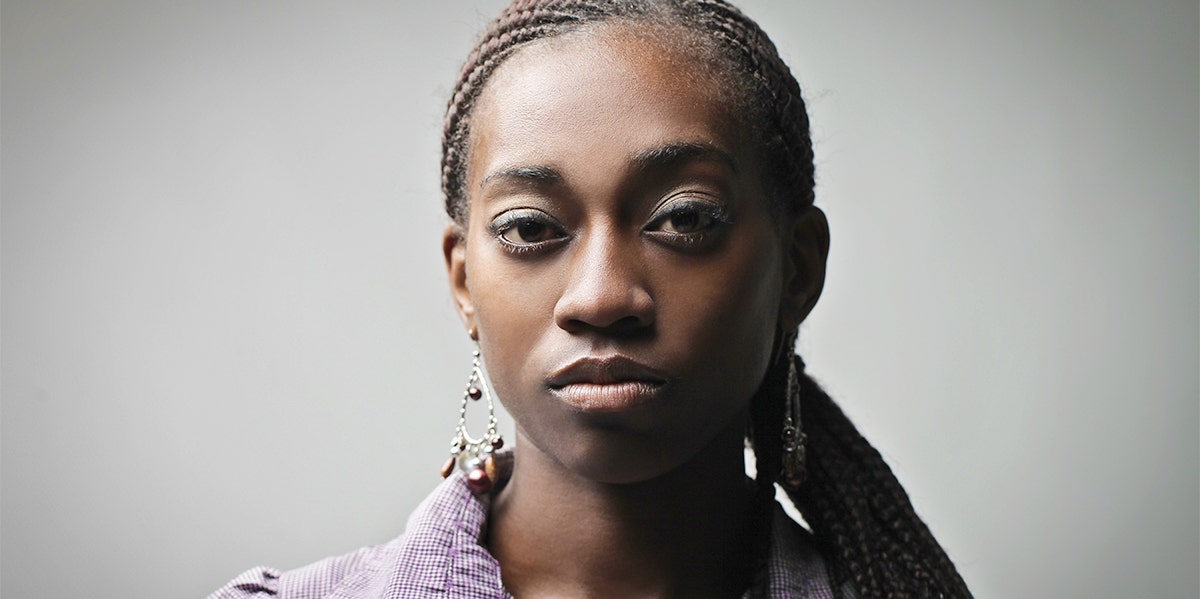Dear White People: Yes, You Can Be Broke *And* Privileged
White privilege applies to poor white people, too.
 Ollyy / Shutterstock
Ollyy / Shutterstock White privilege can be a bitter pill to swallow when you’ve lived a life free from trust funds or financial handouts.
It’s not that you don’t want to align yourself with the anti-racist movement, it’s just that sometimes it doesn’t feel like you’ve had headstarts and advantages when you’ve spent a lot of your life worrying about paying rent or affording meals.
So, it can be pretty insulting when some rich white person on Twitter tells you that you’re “privileged.”
They don’t know what you’ve been through, so how dare they suggest you’re somehow better off just because of the color of your skin?
Viewing white privilege as an insult or attack undermines the importance of this term in dismantling racism. Recognizing your privilege isn’t supposed to make you mad or offended — it’s supposed to help you support others who haven’t been afforded this same privilege.
Peggy McIntosh’s famous 1988 piece, “White Privilege: Unpacking the Invisible Knapsack,” is one of the world’s most prolific and informative articles on white privilege.
It’s a powerful read and features many undeniable examples of white privilege:
“I can turn on the television or open to the front page of the paper and see people of my race widely represented.”
“When I am told about our national heritage or about 'civilization,' I am shown that people of my color made it what it is.”
“I can be sure that my children will be given curricular materials that testify to the existence of their race.”
“I can do well in a challenging situation without being called a credit to my race.”
"I can go home from most meetings of organizations I belong to feeling somewhat tied in, rather than isolated, out-of-place, outnumbered, unheard, held at a distance, or feared."
"I can take a job with an affirmative action employer without having coworkers on the job suspect that I got it because of race."
These privileges may not have put you through college or paid for your house, but they do aid your sense of identity and belonging.
You see yourself in media and history books, therefore you know that your people are powerful. You belong to social systems and are protected by them.
For people who do not have these same privileges, the power of whites means their racial identities are undermined and oppressed. They are not represented in magazines, books, or Congress on the same level as whites, and therefore struggle to access these spaces because of their race.
It’s important to recognize that your white privilege doesn’t deny the existence of some of your other disadvantages.
This assumption that white people can achieve anything if they work hard enough can be frustrating when you’re not part of a middle-class elite. Poverty can completely block your ability to advance your opportunities.
You might struggle to access high paying jobs because your family couldn’t afford to send you to college. Your kids might be mocked in school for not having the newest toys or gadgets.
Your low-income white neighborhood might suffer from similar disadvantages to black communities. You might even know some people of color who are a lot better off than you.
But none of these things mean you don’t have privilege.
White privilege means that even though you may still be a victim of discrimination for your class or income-level, racial discrimination is not something you experience on a mass level.
This concept of intersectionality helps make sense of how privilege operates on different levels for different people.
We can only walk in our own shoes and, therefore, cannot possibly see how privilege, or lack of, effects other racial groups. We don’t see how law enforcement interacts differently with them, or how potential employers have a different attitude towards them.
You cannot deny the existence of something that you cannot see, which is the case with white privilege.
Your financial instability doesn’t denote your lack of white privilege because your race isn’t one of the reasons you struggle to obtain wealth.
The average wealth of white people in America is 6.7 times greater than that of black people. If you’re a white person living in poverty, you may not feel represented in this statistic, but on a national level, the financial difficulties of black people are far greater than that of whites.
This does not mean that the needs of poor white communities should be ignored, it just means that black communities are disproportionately disadvantaged.
And this needs to be recognized and addressed.
When you’re struggling to keep your bank account afloat, people thinking you have white privilege feels like you’re being singled out unfairly.
You are not in charge of what goes in history books, you are not in Congress and you weren’t alive during slavery, so what are you supposed to do about it?
White privilege is not an insult, but actually a great asset when used correctly.
Here and now, white people are the dominant group in society and are responsible for how that dominance impacts others. Privilege is nuanced.
Acknowledging all the ways in which you do have privilege, and also the ways you don’t, helps make sense of white privilege, and better allies you with the fight for change.
Alice Kelly is a writer with a passion for lifestyle, entertainment, and trending topics.
